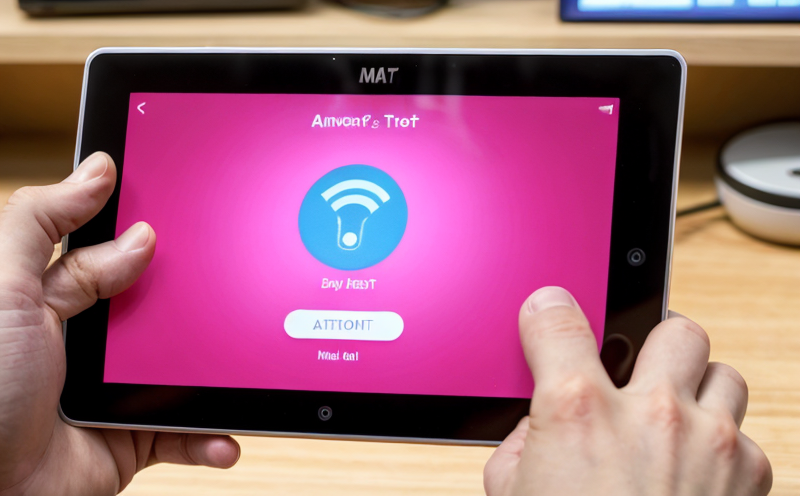Thermal Runaway Testing in Rechargeable Devices
In today’s interconnected world, smart and connected consumer devices have become an integral part of our daily lives. These devices are often powered by rechargeable batteries that provide them with the necessary energy to operate seamlessly. However, these batteries can also pose a significant safety hazard if they fail under certain conditions. Thermal runaway is one such condition where the battery temperature rises uncontrollably, leading to potential fire hazards and other risks.
Thermal runaway testing in rechargeable devices is essential for ensuring that consumer products comply with stringent safety regulations and industry standards. This service involves simulating real-world scenarios under controlled laboratory conditions to identify any potential thermal issues within the battery before they become a risk during actual use. Our team of experts uses advanced instrumentation and techniques to conduct these tests, ensuring accurate and reliable results.
The process begins with thorough specimen preparation, which includes selecting appropriate samples that represent typical consumer products in terms of design and functionality. Once prepared, the specimens undergo rigorous testing using various methods designed to stress the battery beyond normal operational limits. During this phase, we closely monitor temperature changes, voltage fluctuations, and other relevant parameters.
After completing the initial round of tests, any identified risks are addressed by implementing corrective actions such as modifying circuitry or adding protective layers around the batteries. After addressing these issues, further testing is conducted until no more thermal runaway events occur under specified conditions. Throughout this entire process, our team adheres strictly to applicable international standards like ISO 13406-2 and IEC 62196.
Our approach ensures that each product undergoes comprehensive evaluation ensuring its safety throughout its lifecycle. By leveraging state-of-the-art equipment and experienced professionals, we provide clients with peace of mind knowing their products meet all required safety requirements before reaching the market.
To better understand how our thermal runaway testing service works, let us delve into some key aspects:
- Thorough specimen preparation ensuring representative samples
- Rigorous simulation of real-world stress conditions
- Closely monitored temperature and voltage changes during tests
- Implementation of corrective measures based on test outcomes
- Compliance with international standards such as ISO 13406-2 and IEC 62196
Applied Standards
| Standard | Description |
|---|---|
| ISO 13406-2 | This international standard specifies procedures for determining the thermal stability of lithium-ion cells and modules. |
| IEC 62196 | The International Electrotechnical Commission's guideline on safety requirements for battery chargers, including those used in electric vehicles. |
Customer Impact and Satisfaction
By investing in our thermal runaway testing service, customers benefit from enhanced product safety which translates into higher customer satisfaction levels. Our rigorous testing process helps manufacturers identify potential hazards early on, allowing them to make necessary improvements before launching their products into the market.
The results of these tests provide valuable insights that guide continuous improvement efforts aimed at enhancing overall quality and reliability of smart & connected consumer devices. Satisfied customers not only enjoy safer products but also gain confidence in our services, fostering long-term relationships based on trust and reliability.
International Acceptance and Recognition
- The thermal runaway testing procedures we follow are widely accepted by regulatory bodies globally.
- Our laboratory’s certifications align with international standards, ensuring our methods meet global expectations.
- We adhere strictly to guidelines set forth by various organizations such as the International Electrotechnical Commission (IEC) and Underwriters Laboratories Inc. (UL).





